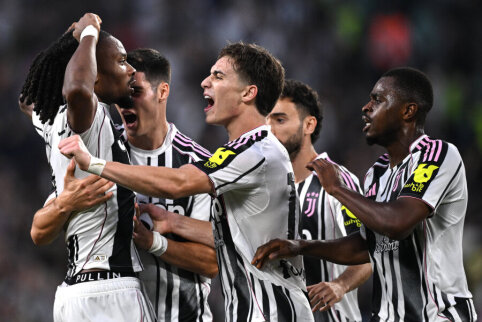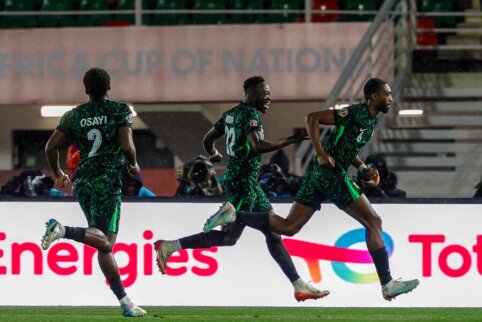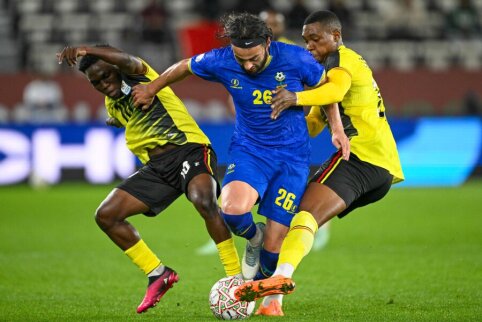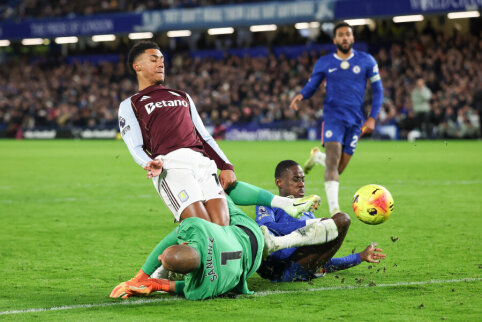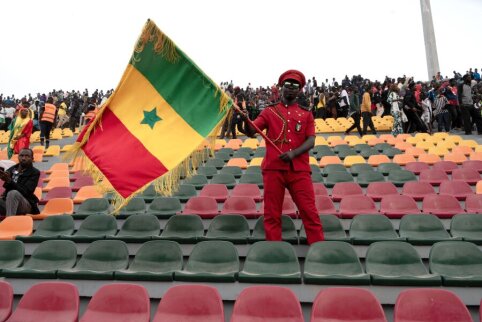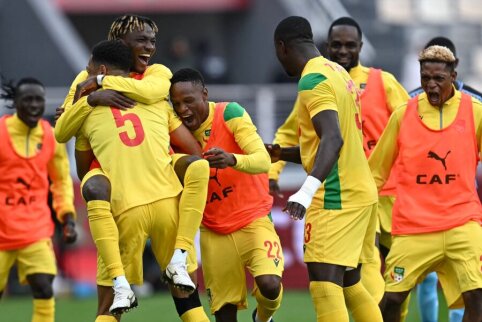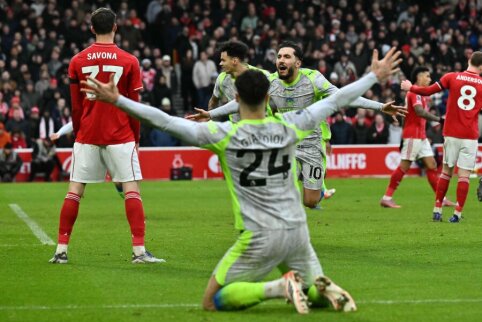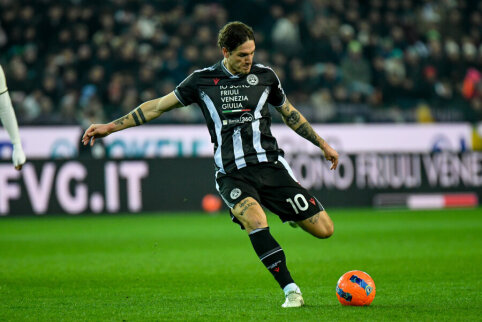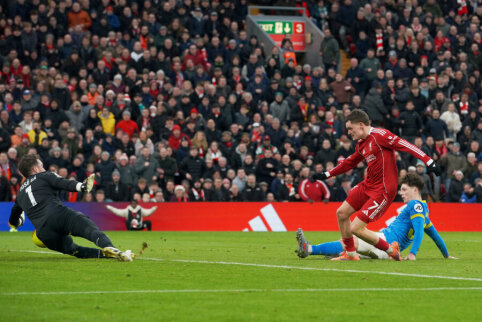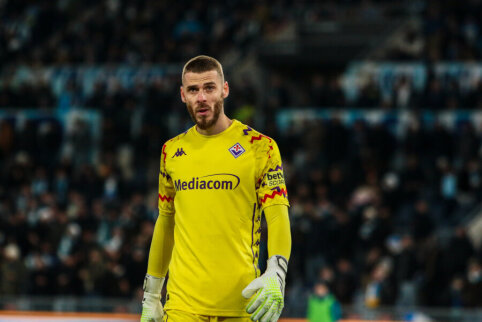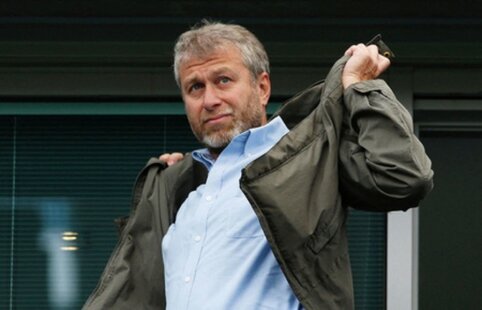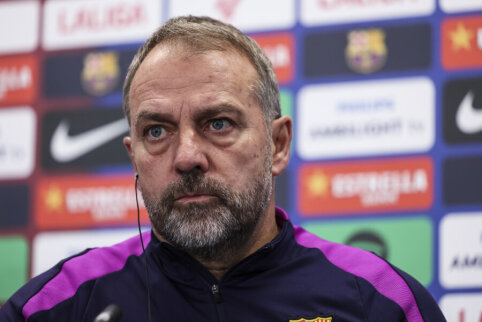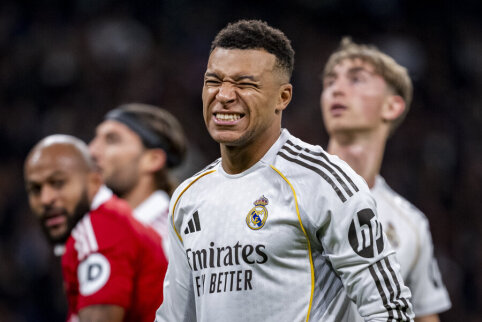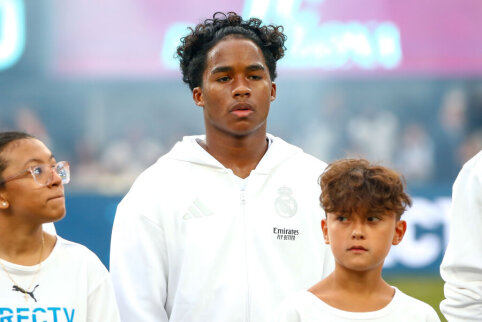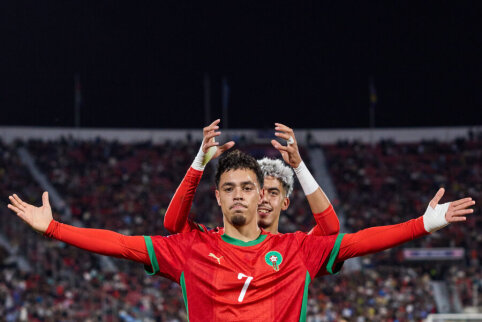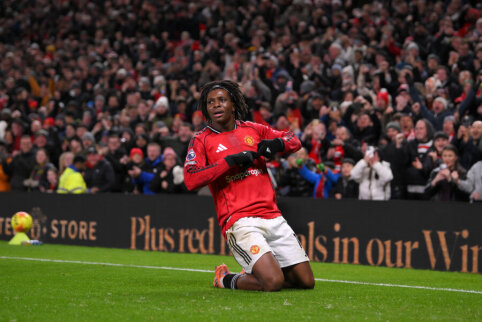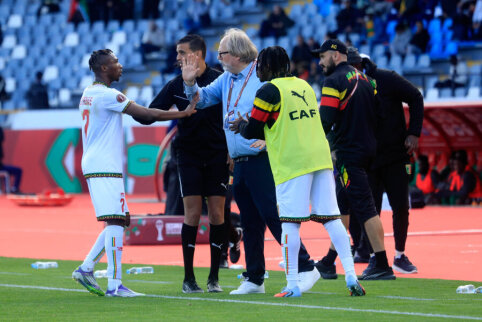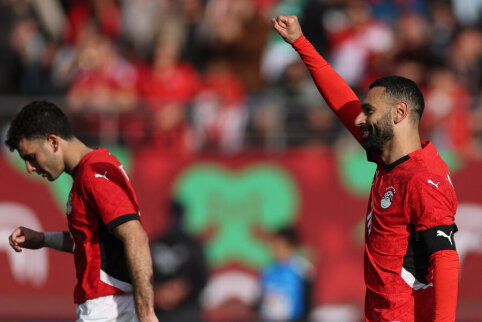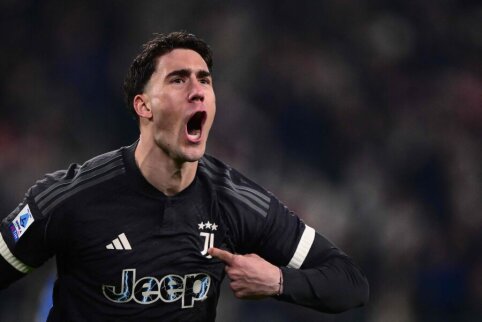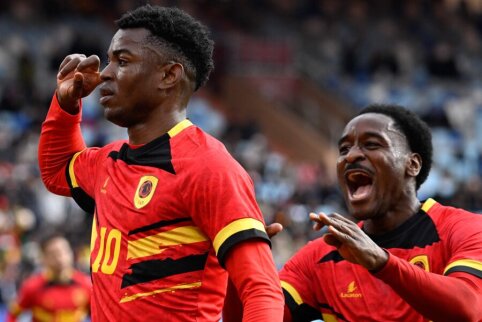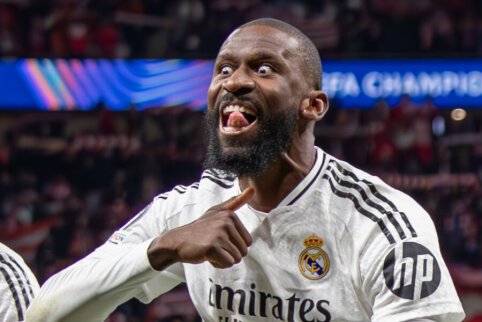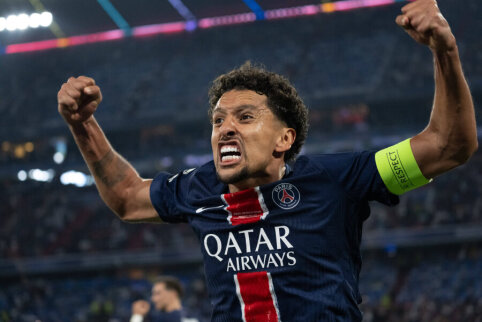 © EuroFootball.com
© EuroFootball.com
Have you ever imagined that a team the size of Marijampolė or Mažeikiai could compete in the Champions League semi-finals? Last year in Spain, dreams turned into reality. A small football team from Villarreal in Europe became a favorite, marching all the way to the Champions League semi-final and making everyone in Spain take notice. Let's take a closer look at the team that captured the hearts of many fans, analyze its recipe for success, and its path to recognition.
Nine years ago, in 1997, Fernando Alfonso Roig decided to buy the "Villarreal" team from the "Segunda" (Spain's II division), which then had an unstable club reputation due to fluctuating results. F. Roig's dream was for "Villarreal" to achieve something similar to what a small Italian city team "Parma" had achieved, which had already won three European trophies at that time.
Back then, "Villarreal" was just an ordinary, unremarkable and little-known team. Founded in 1923, the club played in regional Spanish leagues for several decades, later moving up and in the 8th and 9th decades constantly switching between II and III divisions until it "settled" in the "Segunda."
By acquiring 60% of the club's shares, F. Roig (now he already controls 90% of the shares) paid only £225,000 (more than €350,000), and began to create a unique history in Spanish football - the emergence of a modest team, known for its distinctly yellow-colored kit ("The Yellow Submarine"), in Europe.
In the 1997/98 season, "Villarreal" finished 4th in "Segunda" and in the play-offs surpassed Compostela's "Deportivo" to climb into "La Liga." However, their debut season in the highest Spanish division was not successful, so the club ended up back in "Segunda." Before long - after winning 3rd place there and in 2000, "El Submarino" sailed into "La Liga." As it later turned out - with a splash. F. Roig recalls: "In those years, we started a ten-year program. I invested a lot in the club and the youth academy. The initial goals were to establish ourselves in La Liga and compete in European tournaments. At that time, many people, upon hearing this, just laughed at us."
The first significant signing was "Boca Juniors" forward Martin Palermo. "Maradona personally called me to make sure that I really was going to Villarreal, because he thought it was a joke," recalls the Argentine.
In the 2000-2001 season, upon returning to "La Liga," the "submarines" finished a high 7th. However, the following two seasons were not successful - they only finished in 15th place, but in 2004, they even made it to the UEFA Cup semi-final, where they lost to their neighbors "Valencia."
During the offseason, the team was immediately reinforced not with the most famous, but with players who fit perfectly with the leaders of the team, such as Diego Forlán, Gonzalo Rodríguez, Juan Pablo Sorín, and coach Manuel Pellegrini, who had already established himself in his native Chile, as well as Argentina and Ecuador. "I received two offers at that time. I chose Villarreal, but certainly not for the money," says M. Pellegrini.
At the start of the 2004-2005 season, the "Submarines" scored only 2 goals in 6 matches. "In many cases, I would have already been fired, but the club management was very understanding," remembers the Chilean coach about the tough start of the season.
As the season progressed, "Villarreal" surged and ultimately finished third in the Spanish championship, earning a ticket to the Champions League. The joy was boundless. But after having loaned Alessio Tacchinardi from "Juventus" and exchanged Luciano Figueroa for Guillermo Franco, "Villarreal" managed to advance all the way to the Champions League semifinals. However, the bench depth was too short, so in Spain they had to settle for 8th place.
Before this season, M. Senna was retained, Nihat, P. Cygan, and R. Pires were added, and A. Tacchinardi's loan contract was extended. However, instead of the dreamed journey to Europe, the team found itself in the middle of the Spanish championship standings, and injuries began to plague the players. Just before the new season, the talented 20-year-old striker from Chile, Matias Fernandez, was added to the "Yellow Submarine," giving hope to the fans, who, with their fanaticism, deserve special attention.
Interestingly, the city itself is a small town with only 43,000 inhabitants in eastern Spain, near Valencia. One of the main professions here is growing oranges. Strangely, there is not a single cinema in the city. Football has changed the lives of the locals. Out of slightly over 40,000 residents, last year, 16,500 had a season ticket to the stadium, and the 23,000 seats of "El Madrigal," representing all cinemas for locals, are always filled to the brim.
César Ramón, the owner of the bar "Milagros" located at the stadium, will always remember the Champions League games: "During those games, the bar was always packed. During the match, people would drink 2500 liters of beer and 50 liters of vodka."
The team captain, defender Rodolfo Arruabarrena, is enraptured by the fans: "During each game, half of the town is in the stadium, while the other half awaits the result. In the stands, you can see even older ladies wearing evening dresses - dressed like that, you can go to the opera. Watching football in Villarreal has become a social phenomenon."
"El Madrigal" has become a real wall of invincibility for rival teams. In European tournaments, "Villarreal" won 17 out of 27 matches and suffered only 2 defeats (against not very famous teams AZ and Maribor), conceding only 7 goals.
Where does the secret of success in European competitions lie? Juan Román Riquelme tends to emphasize psychology: "When you step onto the field, you focus and play eleven against eleven, no longer paying attention to the opponent's team history and titles."
"We like two-leg ties and we know that it is very important to play well at home," former team member Juan Pablo Sorín once said.
Many football enthusiasts are amazed by "Villarreal's" style of play - technical, fast, based on quick short passes, and the fact that the team very intelligently uses money in the transfer market and does not buy expensive stars. These foreign players become Villarreal. For example, for a player like Diego Forlán, "Villarreal" paid only about €11 million to "Man Utd"; Juan Román Riquelme from "Barcelona," it is estimated, cost €5-7 million. The defensive backbone Alessio Tacchinardi, the "submarines" borrowed from "Juventus," and the attack leader Guillermo Franco were acquired through exchanges. Nihat, who recently was relatively inexpensive, cost-effective, was added before the current season, and Robert Pires was acquired for next to nothing. A few weeks ago, they paid €8.7 million for the young Chilean Matías Fernández, but his value may soon increase several times.
It is interesting that the team currently has 11 South American legionnaires. However, the club's general manager Jose Manuel Llaneza is very pleased with the players from this region: "South Americans in the team create high competition; they are excellent professionals and great guys with a sense of humor, working with them is a pleasure."
Province-scented Villarreal is close to the heart of the players themselves. Particularly for J.R. Riquelme, who speaks only good words about the city: "Here is beautiful nature - mountains, sea. The city is small, so we don't feel the pressure from the local media or the annoying attention, we can go out for a walk without any problems."
After success in the UEFA Cup tournament and the Champions League, Villarreal received many offers to sell their leaders. Many teams of similar level would have done so, but not the "Yellow Submarine." Fernando Roig has a vision: "Forming a good team is not easy. Instead of selling players, we prefer to strengthen ourselves."
It's hard to believe now, but Fernando Alfonso Roig, who came to the club in 1997, missed... a youth football academy. Now "Villarreal" is compared to Ajax in Amsterdam, which constantly raises talented footballers, and the Dutch club's football academy is one of the most famous in the world.
Since 1997, F. Roig has invested €42 million in the youth football academy, setting up a new sports complex, three training fields, a school, and providing accommodation for young academy students.
"I want eight out of eleven main team players to come from the academy in the coming years. Already now, five of our students constantly make it to the Spanish under-17 national team," declared the club's president and owner.
Before this season, when "Villarreal" missed out on European tournaments, F. Roig said, "This year we are left without European tournaments, so we must focus all our attention on La Liga. Since our start in European tournaments was very sweet, we do not want to wait long to return here."
However, "Villarreal," currently in its eleventh season in Spain, will have to make a lot of effort to return to Europe. Nevertheless, it seems that F. Roig is leading the team in the right direction - he does not waste money on the transfer market and invests wisely in the future. So all that remains for the team's fans is to wait for their favorites to emerge from the slough of failures, heal from injuries, and return to the path of victories. Perhaps the "Yellow Submarine" will soon sail brightly yellow in the waters of the Champions League once again.
